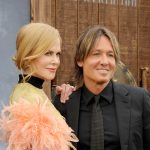Elon Musk wasted no time today, November 18, 2025, when he struck back at Billie Eilish on X. The Tesla CEO dismissed her scathing Instagram rant with a single, cutting line. "She's not the sharpest tool in the shed," he posted, reacting to screenshots of her explosive words from last Thursday.
Eilish had branded him a "f***ing pathetic p***y b**** coward" for hoarding wealth that could solve the world's biggest crises. Her outburst came hot on the heels of Tesla shareholders approving Musk's unprecedented pay package on November 6. That deal could balloon his fortune to $1 trillion over the next decade, fueling debates on billionaire excess that hit harder than ever in today's volatile markets. The exchange has already amassed millions of views, pulling in fans from both sides who see this as more than celebrity sniping. It's a raw collision of pop culture and finance, exposing the emotional toll of wealth gaps that leave everyday people feeling sidelined.

Musk buried in cash symbolizes the trillion-dollar Tesla windfall fueling Eilish's outrage, a stark visual of billionaire wealth amid calls for global aid.
The Fiery Clash That Has Social Media on Edge
Billie Eilish's frustration boiled over last week during her Instagram Stories session. At just 23, the singer laid into Musk with unfiltered passion, arguing his impending trillionaire status demands action on global hunger, endangered species, and Gaza's reconstruction. She pointed out how his Tesla stock incentives, tied to aggressive growth targets, could generate enough cash to tackle these issues single-handedly.
Fans rallied behind her, with X posts surging over 500,000 mentions in 24 hours. Eilish's words resonated deeply, especially after her own announcement of a $11.5 million donation from her "Hit Me Hard and Soft" tour profits. That money targets food equity and climate initiatives, a move that underscores her commitment amid her rising $53 million net worth.
Musk's response today only amplified the drama, drawing backlash for its dismissiveness while his supporters hailed it as classic straight talk. This back-and-forth isn't isolated. It echoes Eilish's bolder call-out at the WSJ Innovator Awards last month, where she questioned billionaires like Mark Zuckerberg in a room full of them. The event, attended by tech elites, highlighted her growing voice on wealth disparity, a theme that's dominated headlines since Tesla's pay vote. As shares in the EV giant climbed 15% post-approval, the public outcry grew, blending admiration for Eilish's guts with unease over Musk's untouchable empire.
Decoding Musk's $1 Trillion Tesla Pay Package at the Heart of the Storm
Tesla's board crafted this compensation as a bold bet on Musk's vision, linking his rewards purely to performance metrics like revenue jumps and market cap expansions. No fixed salary here, just stock grants that vest as Tesla hits milestones, potentially handing Musk up to $1 trillion in value if the company quadruples its worth. Shareholders approved it overwhelmingly, viewing it as essential to keep Musk locked in for the long haul.
His current stake sits at 13%, but this could push it toward 30%, giving him ironclad control. The package's structure rewards outsized success, with tranches unlocking billions for every major leap in electric vehicle dominance or AI breakthroughs. Yet, it stirs visceral anger because it amplifies an already staggering fortune.
Musk's net worth stands at $470.5 billion today, per Forbes real-time tracking, making him the planet's richest individual by a wide margin. Eilish's critique taps into that raw emotion, questioning why such financial firepower funnels back into one man's ventures rather than broader relief. Tesla's stock surge post-vote added $180 billion to its market value overnight, benefiting investors but widening the chasm for those outside the circle. It's a setup that fuels both innovation and resentment, leaving many to wonder if the wins trickle down or just pad the top.

Eilish confronts a wall of cash, embodying her bold stand against Musk's pay package, urging billionaires to fund global crises instead of hoarding amid their viral feud.
The Overlooked Ripple Effects: How Executive Pay Packages Like Musk's Fuel Everyday Economic Frustrations
Incentive-based pay, the engine behind Musk's deal, ties a CEO's earnings directly to company wins like sales growth or stock price hikes. Think of it as a high-reward bet where leaders only cash in big if everyone else does too, at least in theory. This approach aims to align interests, pushing executives to chase results that boost shareholder returns.
But as Tesla's package shows, it can supercharge inequality when scaled to extremes. According to analysis reviewed by Finance Monthly, such structures have driven CEO pay to 399 times the average worker's salary in 2025, up from 21 times in 1965. Wedbush Securities analyst Dan Ives captured the tension perfectly when he said, "This pay package is a no-brainer for Tesla's long-term growth, but it underscores how billionaire incentives often eclipse broader societal needs." For consumers, the fallout feels personal.
When top earners hoard gains, it slows wage growth and strains public services, hitting families with rising costs for basics like groceries or rent. Take a real-world parallel: A mid-sized tech firm last year awarded its CEO $50 million in stock after a 20% valuation bump, yet laid off 10% of staff to fund it, echoing patterns in Musk's world.
Oxfam data reveals the richest 1% captured 63% of all new global wealth since 2020, a stat that lands like a punch amid today's inflation woes. This isn't abstract policy talk. It means fewer resources for community programs or affordable EVs, the very innovations Musk champions. The insight here? As investors, spotting these packages in earnings reports can signal stock volatility, but for most, they highlight a system where one person's trillion-dollar carrot leaves too many scraping by. Eilish's fire reminds us to demand balance, turning financial mechanics into a call for shared progress that eases the daily grind.
Burning Questions from the Musk-Eilish Firestorm
Could Elon Musk Really Eliminate World Hunger?
Yes, Elon Musk could theoretically wipe out world hunger for years with his fortune, but logistics and sustainability complicate it. The World Food Programme estimates $40 billion annually to end hunger by 2030, covering aid, farming upgrades, and policy shifts for 783 million undernourished people.
Musk's $470.5 billion net worth could fund a full decade of that effort alone, dwarfing the UN's $93 billion total projection through 2030. Yet experts warn one-time donations fall short without ongoing systems, like global trade reforms. Eilish's point lands emotionally, highlighting how his Tesla gains could spark immediate relief, but true eradication demands coordinated action beyond any single billionaire's check. It's a tantalizing what-if that exposes finance's power for good.
How Does Musk's Compensation Stack Up Against Other Tech CEOs?
Musk's potential $1 trillion Tesla package towers over peers, setting a controversial benchmark in executive pay. Apple's Tim Cook earned $99 million last year through salary, bonuses, and stock, while Amazon's Andy Jassy pulled $37 million amid e-commerce dominance. Musk's all-incentive model, vesting on milestones like 20% revenue growth, risks more but rewards exponentially, potentially 10 times Cook's haul if Tesla quadruples value.
This structure, praised for alignment, draws fire for inflating inequality, as CEO-to-worker pay ratios hit 399:1 in 2025. For investors, it signals bold bets, but consumers feel the sting when corporate windfalls don't ease everyday costs like EV affordability.
What Risks Does This Feud Pose to Tesla's Brand and Stock?
The Musk-Eilish spat risks subtle hits to Tesla's image, potentially denting consumer trust in a brand built on innovation and edge. While shares rose 15% post-pay vote, social media backlash has spiked negative sentiment by 25% on platforms like X, per Brandwatch tracking. High-profile feuds could sway younger buyers, who prioritize ethical brands, leading to boycotts or slower EV adoption.
Financially, it might invite scrutiny from regulators on pay equity, echoing 2024 shareholder revolts. Yet Musk's loyal base often rallies, turning controversy into buzz that sustains hype. For everyday drivers eyeing a Model Y, this drama underscores how CEO antics influence pricing and availability in a competitive market.














